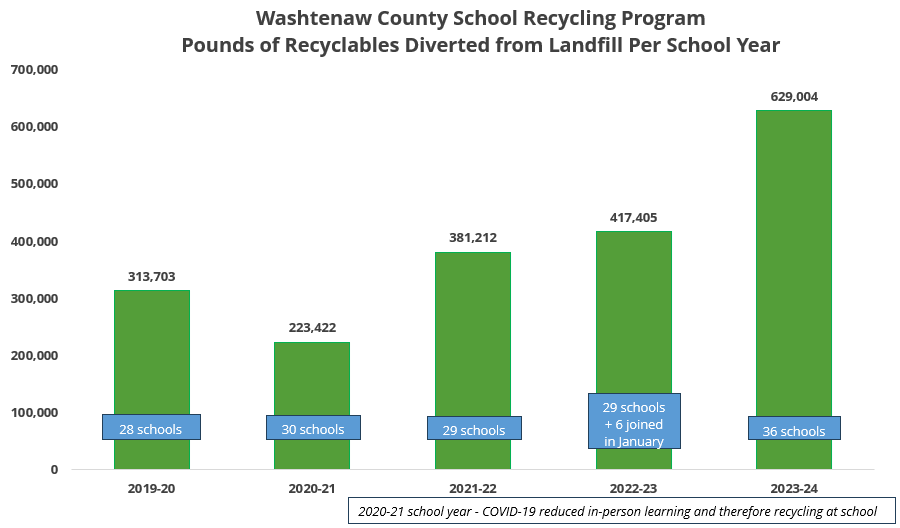The Washtenaw County Schools Recycling Program is a partnership between Ecology Center, local schools, and Washtenaw County to provide recycling service and education free to participating schools. More information about the Washtenaw County Schools Recycling Program

As program partners, the Ecology Center is responsible for developing and delivering recycling education for students and staff. If you are affiliated with one of the program’s participating schools, you are eligible for ongoing, free recycling education. Register online or contact our program coordinator at [email protected] to discuss options.
How do Ecology Center lessons benefit schools:
The Ecology Center’s recycling workshops work together to support a strong recycling system in your school, a culture of environmental stewardship, and civic responsibility. Age-appropriate activities are recommended for specific grade-ranges or adult audiences, including specific training resources for custodial staff, teaching staff, and students and their families. Data from previous years demonstrates an increase in knowledge about recycling and decrease in contamination found at schools.
What's the cost for educational resources:
Sponsorship from the Washtenaw County Water Resources Department allows us to offer educational workshops and trainings for staff and students for FREE to Washtenaw County schools participating in the county’s recycling program.


